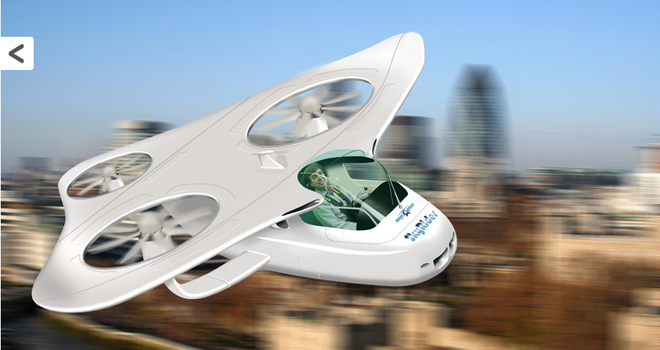The era of epic manned space flight may be over, but the era of personal aircrafts may be just beginning.
Or so believe some Americans, and some officials in Europe, who have just sunk a little over $6 million dollars into a research project on “personal aerial vehicles.”
The European Commission has established a project called “MyCopter” to investigate the feasibility of such personal aircraft.
“It is now a question of when we’ll get personal aerial vehicles, not if we’ll get them,” project leader Heinrich Buelthoff of the Max Planck Institute for Biological Cybernetics tells the New Scientist. The Institute is based in Tuebingen, Germany.
A primary area of research will involve the development of a sophisticated anti-collision system that will enable robotic flight, according the the New Scientist.
Unlike Terrafugia’s flying car concept, these personal aerial vehicles would not require their pilots to drive to the airport to take off — they would take off right from their garages.
The project sounds futuristic, but the “flocking” algorithms that the researchers are developing (so that such vehicles can fly in formation without crashing into each other) are likely to be first applied to drones.
Though the project’s web site says that such vehicles might one day replace cars by flying in formation down pre-defined paths like highways, touching down to reality Buelthoff acknowledges to the New Scientist that “making it affordable is another question.”









